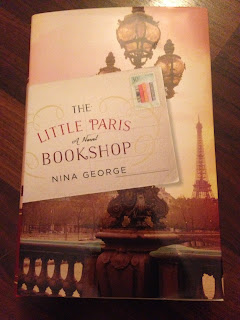
Printed text is like the wheel in some ways. It's one of the first basic inventions, one that millions of others benefit from. Before printed text, reading was reserved for the few who, through luck or wealth, could get their hands on the labor-intensive, hand-printed texts. After Gutenberg, books became accessible to larger and larger pockets of people and more and more information became available because it was printed. Knowledge wasn't lost after a sheepskin or papyrus disintegrated. Even the internet exists because we were able to amass and share knowledge through printed text. Reading has allowed us to transmit knowledge for a long time but, partly because it works so well, we didn't really monkey around with the basic delivery system for years. We have now.

As a kid, I heard about audiobooks but only as substitute for blind people who hadn't mastered Braille. It was the 1990's before I used them. We rented them for long car trips as an alternative to recorded music and conversation. Don't ask me why but books about ocean disasters always seemed to accompany us on trips to the beach. (It's probably a mistake to listen to
A Perfect Storm or
Jaws when you're on the way to the coast; if the weather turns bad or something bumps you in the water, the engrossing narrative will come back to haunt you.) A lot of recorded books fail because of an untalented reader so don't judge the book by the voice-over. On the other hand, there are some magical combinations like those gifted Harry Potter readers, Jim Dale and Stephen Fry (or Mark Linn-Baker reading Chris Buckley's
Little Green Men) . At their best, audio books are like being read-aloud to by someone who knows how to create all the voices. You can't speed-read through this medium but the fun is in the trip.
The problem with audio-books is the same problem with paper ones: they can take up so much room! For the first half-century of my life, preparing for a trip meant packing my clothes and my books, not necessarily in that order. So, once I caught on to e-books, I was a sold customer. With the app on my phone and app on my computer(s), I always have access to a library. And I don't have to be at a bookstore to pick up the book I've been wanting. When a long-awaited novel appeared in the middle of my vacation, I downloaded the book and read it at top speed on my phone. Yes, with no more than 35 words on the screen at one time, I wore out my thumb flipping pages but the convenience was worth it. I'm just sorry the novel wasn't.
All this leads up to my latest addiction: I've fallen in love with Whispersync. (Full disclosure: I am a customer of Amazon, probably the idiot who first put them in the profit margin. I know I've sponsored a Frankenstein that's killing the independent bookstores plus some of the chains and I am sorry. In the meantime, I'm a book addict and they deliver my D. O. C. on command.) Whispersync marries the best features of the electronic and audio books. Buy a book with Whispersync and read till your little eyes are sore. (Or you have to do something that requires your visual attention like drive, or sleep or work.) Then, push the icon at the bottom of the page and the audio-book takes up the tale, right where your eyes stopped reading. Are you at a point where you can eye-read again? Push the icon and flip the book back to text, exactly where the audio left off. How nifty is that?

Now that I see what the options are, I can hardly wait for the next innovation. If I buy a Shakespearean play, will an app project a holograph performance of the play while my eyes follow along on the text? (Yes, please, and cast David Tennant while you're at it!) Can my traditional cook-books have a pop-up app that shows me exactly how to assemble Boef en Croute? (I'm going to need some serious help here, find a way to get Ina Garten to virtually interact with me through software so I can finally learn how to cook!) The possibilities are endless!
Oh, I still love the heft of a traditional book in my hand. There's nothing like the shape and feel of a book with lots of lovely pages. But I realize this form is a good transport system not the first one and not the last. In the end it's not the form but the function that matters. It's a pathway into that wonderful river of words.














